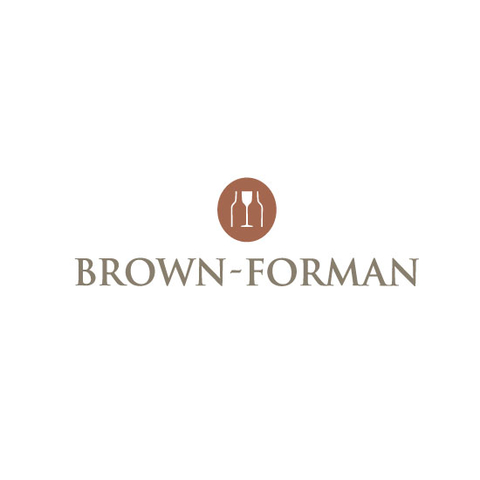LOUISVILLE, Ky.--(BUSINESS WIRE)--Brown-Forman Corporation (NYSE:BFA,BFB) announced today a change in its Emerging International leadership and Executive Leadership Team (ELT). Michael Masick will become President, Emerging International, and join the ELT, effective July 1. Thomas Hinrichs, who currently serves in this role, will retire from Brown-Forman after a 28-year career, effective June 30.
"Michael is well-versed in corporate, brand, and business strategy and is an exceptional strategic thinker. With his strong commercial and financial acumen and proven ability to navigate complexity and uncertainty, Michael exemplifies outstanding business leadership," said Lawson Whiting, President and CEO of Brown-Forman. "Michael is a passionate advocate for our people and culture. I look forward to working closely with him to grow our brands and business in the Emerging International markets.”
As President, Emerging International, Michael Masick will lead the long-term strategy for the region and drive growth in the company’s Emerging International markets, including Latin America, Asia, Australia, Pacific Islands, New Zealand, India, the Middle East, Ukraine, the Commonwealth of Independent States (CIS), Africa, and Global Travel Retail.
Masick has been part of Brown-Forman for more than 14 years, serving in a number of finance, strategy, and commercial leadership positions. He is currently the Managing Director for the Latin America, Africa, Ukraine, and the CIS markets.
In previous roles, Masick led the finance function for Developed Europe, based in Amsterdam, and was instrumental in the creation of Brown-Forman’s international strategy and Developed Europe’s regional strategy. As the leader of Corporate Development, he played a key role in the acquisitions of Slane Irish Whisky and The GlenDronach, Benriach, and Glenglassaugh single malt Scotch whiskies, as well as the divestiture of Southern Comfort and Tuaca. Masick also led global business strategy and analysis efforts for the Jack Daniel’s family of brands during a period of significant growth. Prior to joining Brown-Forman, Masick worked in investment banking in positions where he developed and honed his acquisition, finance, strategy, and analytics expertise.
Thomas Hinrichs joined Brown-Forman in 1996 as a marketing manager in Germany. During his 28-year tenure, his responsibilities have continuously expanded to reflect the critical role he has played in the company’s globalization efforts. His valued contributions and leadership successes resulted in him being named to the ELT in 2015. Over the course of his career, Hinrichs has served in a number of executive positions to include Executive Vice President, President, Emerging International; Senior Vice President, Managing Director, International; Vice President, Managing Director, Greater Europe; and Vice President, Regional Director, Northern Europe.
In these roles, Hinrichs has provided commercial leadership expertise for developed and emerging markets alike. Additionally, he has been instrumental in designing and implementing evolved routes-to-consumer models and developing leaders and teams that have enabled Brown-Forman’s international growth.
“Thomas has been an invaluable asset to Brown-Forman’s global expansion, leaving a positive mark on countless people and places. His influence spans nearly three decades and will undoubtedly propel our continued growth long after his tenure,” said Whiting. “There are numerous leadership traits for which Thomas will long be remembered. He has made a lasting impact on Brown-Forman’s business and culture through his thoughtful and inclusive presence, generous and kind spirit, deep commercial acumen, and resounding commitment to the company’s success.”
About Brown-Forman
For more than 150 years, Brown-Forman Corporation has enriched the experience of life by responsibly building fine quality beverage alcohol brands, including Jack Daniel's Tennessee Whiskey, Jack Daniel's Ready-to-Drinks, Jack Daniel's Tennessee Honey, Jack Daniel's Tennessee Fire, Jack Daniel's Tennessee Apple, Gentleman Jack, Jack Daniel's Single Barrel, Woodford Reserve, Old Forester, Coopers’ Craft, The GlenDronach, Benriach, Glenglassaugh, Slane, Herradura, el Jimador, New Mix, Korbel, Chambord, Fords Gin, Gin Mare, and Diplomático Rum. Brown-Forman’s brands are supported by approximately 5,600 employees globally and sold in more than 170 countries worldwide. For more information about the company, please visit brown-forman.com. Follow us on LinkedIn, Instagram, and X, formerly Twitter.
Important Information on Forward-Looking Statements:
This press release contains statements, estimates, and projections that are “forward-looking statements” as defined under U.S. federal securities laws. Words such as “aim,” “anticipate,” “aspire,” “believe,” “can,” “continue,” “could,” “envision,” “estimate,” “expect,” “expectation,” “intend,” “may,” “might,” “plan,” “potential,” “project,” “pursue,” “see,” “seek,” “should,” “will,” “would,” and similar words indicate forward-looking statements, which speak only as of the date we make them. Except as required by law, we do not intend to update or revise any forward-looking statements, whether as a result of new information, future events, or otherwise. By their nature, forward-looking statements involve risks, uncertainties, and other factors (many beyond our control) that could cause our actual results to differ materially from our historical experience or from our current expectations or projections. These risks and uncertainties include, but are not limited to:
- Our substantial dependence upon the continued growth of the Jack Daniel's family of brands
- Substantial competition from new entrants, consolidations by competitors and retailers, and other competitive activities, such as pricing actions (including price reductions, promotions, discounting, couponing, or free goods), marketing, category expansion, product introductions, or entry or expansion in our geographic markets or distribution networks
- Route-to-consumer changes that affect the timing of our sales, temporarily disrupt the marketing or sale of our products, or result in higher fixed costs
- Disruption of our distribution network or inventory fluctuations in our products by distributors, wholesalers, or retailers
- Changes in consumer preferences, consumption, or purchase patterns – particularly away from larger producers in favor of small distilleries or local producers, or away from brown spirits, our premium products, or spirits generally, and our ability to anticipate or react to them; further legalization of marijuana; bar, restaurant, travel, or other on-premise declines; shifts in demographic or health and wellness trends; or unfavorable consumer reaction to new products, line extensions, package changes, product reformulations, or other product innovation
- Production facility, aging warehouse, or supply chain disruption
- Imprecision in supply/demand forecasting
- Higher costs, lower quality, or unavailability of energy, water, raw materials, product ingredients, or labor
- Risks associated with acquisitions, dispositions, business partnerships, or investments – such as acquisition integration, termination difficulties or costs, or impairment in recorded value
- Impact of health epidemics and pandemics, and the risk of the resulting negative economic impacts and related governmental actions
- Unfavorable global or regional economic conditions and related economic slowdowns or recessions, low consumer confidence, high unemployment, weak credit or capital markets, budget deficits, burdensome government debt, austerity measures, higher interest rates, higher taxes, political instability, higher inflation, deflation, lower returns on pension assets, or lower discount rates for pension obligations
- Product recalls or other product liability claims, product tampering, contamination, or quality issues
- Negative publicity related to our company, products, brands, marketing, executive leadership, employees, Board of Directors, family stockholders, operations, business performance, or prospects
- Failure to attract or retain key executive or employee talent
- Risks associated with being a U.S.-based company with a global business, including commercial, political, and financial risks; local labor policies and conditions; protectionist trade policies, or economic or trade sanctions, including additional retaliatory tariffs on American whiskeys and the effectiveness of our actions to mitigate the negative impact on our margins, sales, and distributors; compliance with local trade practices and other regulations; terrorism, kidnapping, extortion, or other types of violence; and health pandemics
- Failure to comply with anti-corruption laws, trade sanctions and restrictions, or similar laws or regulations
- Fluctuations in foreign currency exchange rates, particularly a stronger U.S. dollar
- Changes in laws, regulatory measures, or governmental policies, especially those affecting production, importation, marketing, labeling, pricing, distribution, sale, or consumption of our beverage alcohol products
- Tax rate changes (including excise, corporate, sales or value-added taxes, property taxes, payroll taxes, import and export duties, and tariffs) or changes in related reserves, changes in tax rules or accounting standards, and the unpredictability and suddenness with which they can occur
- Decline in the social acceptability of beverage alcohol in significant markets
- Significant additional labeling or warning requirements or limitations on availability of our beverage alcohol products
- Counterfeiting and inadequate protection of our intellectual property rights
- Significant legal disputes and proceedings, or government investigations
- Cyber breach or failure or corruption of our key information technology systems or those of our suppliers, customers, or direct and indirect business partners, or failure to comply with personal data protection laws
- Our status as a family “controlled company” under New York Stock Exchange rules, and our dual-class share structure
For further information on these and other risks, please refer to our public filings, including the “Risk Factors” section of our annual report on Form 10-K and quarterly reports on Form 10-Q filed with the Securities and Exchange Commission.





